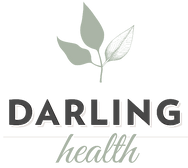
REVERSE T3: WHAT IS IT AND WHY YOU SHOULD HAVE IT TESTED?
If you have been seeing a Doctor or a Naturopath regarding fatigue, weight concerns, fertility, or many other complex health concerns, you might be familiar with some of the big names in thyroid health. These include; TSH, T4, T3 and Thyroid Antibodies.
Whilst we won’t go into the detail of each thyroid hormone and the full biochemistry of thyroid function in this blog post, know that thyroid hormones are essential in maintaining and regulating the body's metabolism. Ultimately, T4 needs to be converted into T3 - the most active of the thyroid hormones.
But, have you heard of Reverse T3?
Reverse T3 could be the missing link to finding out why you have hypothyroid symptoms despite all your other (more basic) thyroid blood tests appearing to be normal, or when are you feeling terrible, even when taking your thyroid medication.
Put simply, reverse T3 is known as the inactive ‘thyroid hormone’ and one that can sometimes wreak havoc when everything else is seemingly functioning as it should be.
What causes elevated reverse T3
What you need to know is; when converting the thyroid hormones T4 to the T3, your body has the option of converting T4 into the ACTIVE thyroid hormone T3 or the INACTIVE thyroid metabolite, Reverse T3.
It's sort of like a fork in the road. Your body is constantly deciding which direction it is going, left or right.
Reverse T3 is always produced as a natural consequence of thyroid hormone production. This is an evolutionary process in the body, and this means that a person with a well-functioning thyroid will produce reverse T3, and this is a normal, healthy occurrence. Reverse T3 shows how much active T3 is actually available for use.
What isn’t normal, is in times of stressful situations for a person, excessive amounts of T4 can be shunted down the RIGHT pathway more, leaving little leftover to be converted.
If most of the T4 in your body goes down the ACTIVE T3 pathway (Left), then your tissues get the thyroid hormone they need, and everything is good. Thumbs up!
If too much goes down the INACTIVE Reverse T3 pathway (Right), then the active thyroid hormone (T3) is BLOCKED. Thumbs down!
This can happen for a number of reasons including:
- Stress (our stress hormone cortisol increases conversion of T4 into reverse T3)
- Poor blood sugar management and insulin resistance
- Pain and or Inflammation
- Gut bugs
- Infection
- Starvation or crash dieting
- Chronic illness
- Certain nutritional deficiencies
- Certain medications
All of these factors contribute to the shunting or shall we call it a “metabolic brake” - acting to slow down your metabolism, reduce thyroid function at the cellular level and ultimately results in hypothyroid symptoms.

When should you have reverse t3 assessed?
I advocate for reverse T3 assessment when a patient is experiencing symptoms of hypothyroidism, despite having seemingly well-functioning thyroid markers and often have other symptoms that are highly present and sometimes debilitating. These include;
- Weight gain or difficulty losing weight – feeling puffy or swollen
- Severe low energy levels, brain fog or concentration
- Hair-loss
- Low mood
- Low pain threshold, muscles aches and pains
- Sluggish digestion
- Menstrual irregularities or other hormonal dysregulation
- Low libido
- Low blood pressure and heart rate
In these cases, identifying a raised reverse T3 can be helpful to shed light on why you may still be feeling ordinary, despite normal levels.
What are we looking for in a test result?
You can easily have your reverse T3 tested by your doctor or Naturopath. It is a serum blood test and can be completed any time of day. It is useful to have it tested alongside all the other thyroid markers as what we are looking for in a result is that it should be no more than 100 times greater than your Free T3 level, as it is relative to the Free T3 you have.
Ultimately, if reverse T3 levels are elevated, identifying the reasons why is integral to addressing the problem. Correcting underlying factors and supporting yourself with appropriate nutrients, will help regulate thyroid hormone metabolism and ideally, improve conversion of T4 to its more active form, T3.
If you’re experiencing unexplained symptoms or symptoms that don’t fit the picture as told on your blood tests, it’s worth investigating this further and getting to the root cause of the problem with your Naturopath.
Written by Carmen Cooper

